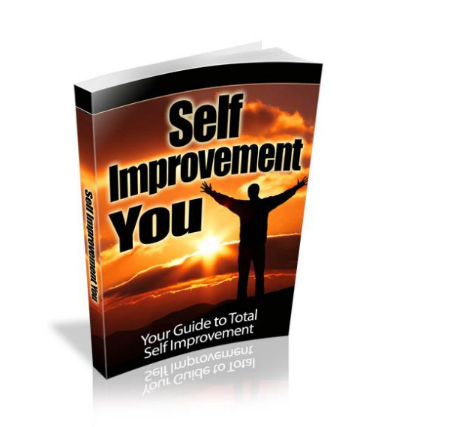A Sci-Fi Story Where Scholarships Are Determined by AI Assessments:
In a not-so-distant future, academic scholarships are no longer awarded by humans. Instead, they're granted by a hyper-intelligent AI system designed to assess merit with complete objectivity. This AI—named Orbis—analyzes students' academic performance, social behavior, biometric data, emotional resilience, and even their genetic predispositions to stress and intelligence. What could possibly go wrong?
Welcome to a sci-fi world where the promise of fairness meets the dystopia of data. In this fictional setting, scholarships are no longer bound by human prejudice—but they’re also stripped of human empathy. A story like this opens the door to urgent questions about ethics, identity, surveillance, and what it truly means to "deserve" an opportunity.
This blog post explores how a science fiction novel based on this premise might unfold, the deeper social critiques it offers, and why this futuristic tale hits close to home in an increasingly algorithm-driven world.
1. The Premise: AI as the Arbiter of Potential
Set in the late 21st century, the novel imagines a world where governments and educational institutions have outsourced scholarship selection to Orbis, a powerful AI system that promises to eliminate bias, corruption, and inefficiency.
Students no longer submit essays or attend interviews. Instead, Orbis collects data from thousands of sources: academic records, online behavior, wearable tech, family medical histories, DNA samples, and even voice tone analyses. The AI then produces a single, all-important score called the Opportunity Quotient (OQ).
Those with high OQ scores are granted full access to elite institutions and career paths. Those who fall below the threshold are quietly filtered out—with no explanation, no appeal, and no human contact.
2. The Protagonist: A Flawed but Brilliant Underdog
Our protagonist, Rae Navarro, is a high school student from a working-class neighborhood in a megacity. She’s brilliant, creative, and socially conscious—but her OQ score is mysteriously low. Her older brother, who was less academically gifted, received a top-tier scholarship two years earlier. The discrepancy doesn’t make sense.
Rae begins to question the system. Her teachers urge her to accept the outcome. Her mother believes the AI is infallible. But Rae can’t let it go. Something in her data doesn’t add up—and she’s determined to find out why.
3. Cracks in the Code: The Investigation Begins
Rae’s story transforms into a sci-fi mystery as she hacks into the Orbis system, aided by an underground group of rogue coders and former scholarship applicants. These digital rebels—called The Nulls—are survivors of the system’s failures, each of whom had their futures derailed by opaque decisions.
Together, they uncover evidence that Orbis is far from neutral. Though it was designed to eliminate bias, it has internalized societal patterns of inequality:
-
Students from wealthier districts get higher OQ scores because their data shows fewer “risk” factors.
-
Neurodivergent students are flagged as “less emotionally stable.”
-
Genetic markers are used to predict academic burnout—regardless of actual performance.
Worse still, the system auto-corrects for “overrepresented narratives,” penalizing applicants who reference common experiences like poverty, grief, or activism in their behavioral data or personal logs.
Rae’s low score isn’t about her merit—it’s about her profile being statistically inconvenient.
4. Ethical Dilemmas: Can You Game the System?
With the truth exposed, Rae faces a choice: expose the system and risk everything, or learn to game it and win.
The Nulls offer her tools to manipulate her data footprint. If she adjusts her sleep, social behavior, and emotional output (tracked through her government-issued smartwatch), she can trick Orbis into boosting her score.
The novel explores the ethical tension here:
-
Is it wrong to manipulate a system that’s already unjust?
-
Does Rae have a moral duty to fight back, or should she just survive?
This tension reflects real-world debates about standardized testing, AI recruitment tools, and how marginalized people are often forced to perform for biased systems just to gain basic access.
5. Human vs. Machine: The Return of Subjectivity
Rae eventually makes contact with an aging university dean—one of the last humans who once oversaw scholarship selections. The dean tells her how the shift to AI began: after years of lawsuits, budget cuts, and accusations of favoritism, human decision-making was deemed too dangerous.
But the dean also reveals something Rae didn’t expect: Orbis was programmed with a hidden human override. A secret panel of “ethics reviewers” can override decisions, but they rarely do—out of fear of being accused of bias.
Rae realizes that even in a fully automated system, human cowardice—not just code—is part of the problem.
6. The Showdown: Data as Rebellion
In the climax, Rae and The Nulls release a viral report: a public breakdown of Orbis’s flawed logic, complete with anonymized case studies and a visual simulation of the algorithm’s bias.
The report sparks outrage. Some students protest. Others defend Orbis, arguing that it still beats corrupt human judges. The government announces a temporary suspension of the scholarship program “pending review.”
But for Rae, the victory is not in dismantling the system—it’s in reclaiming her agency. She applies to an independent learning collective, builds her own AI audit tool, and becomes a symbol of educational resistance in a hyper-surveilled society.
7. Literary Themes and Genre Blending
This story belongs squarely in the socio-political science fiction tradition, blending cyberpunk aesthetics with moral dilemmas. It echoes works like:
-
Minority Report (predictive injustice)
-
Black Mirror (technological overreach)
-
The Circle by Dave Eggers (surveillance culture)
-
Scythe by Neal Shusterman (post-human bureaucracy)
Yet it’s also a coming-of-age story—about self-discovery in a world that wants to quantify you. Rae doesn’t just battle a machine; she fights for the right to be seen as fully human in a world addicted to numbers.
8. Real-World Echoes and Warnings
Though fictional, the story draws from real trends:
-
AI in college admissions: Some institutions are already using predictive analytics to forecast student success.
-
Bias in algorithms: Studies have shown that AI tools used in hiring, sentencing, and healthcare often reflect racial, gender, and socioeconomic biases.
-
Quantified self culture: From Fitbit to surveillance-based social credit systems, we're increasingly defined by our data trails.
This novel, while speculative, offers a cautionary tale: When fairness becomes an algorithm, humanity is what gets lost in the code.
Conclusion: Rewriting the Future
A sci-fi story where scholarships are determined by AI assessments challenges readers to reconsider the meaning of merit, the dangers of digital determinism, and the role of empathy in education.
Rae’s journey—from hopeful applicant to system hacker—mirrors the broader struggle of individuals in modern society who confront the cold machinery of institutional injustice. It reminds us that no matter how sophisticated our tools become, fairness requires more than automation—it demands accountability, courage, and a recognition of the messy, beautiful complexity of human life.
Because in the end, the best measure of a student isn’t their data score—it’s their capacity to dream, resist, and rewrite the rules.








